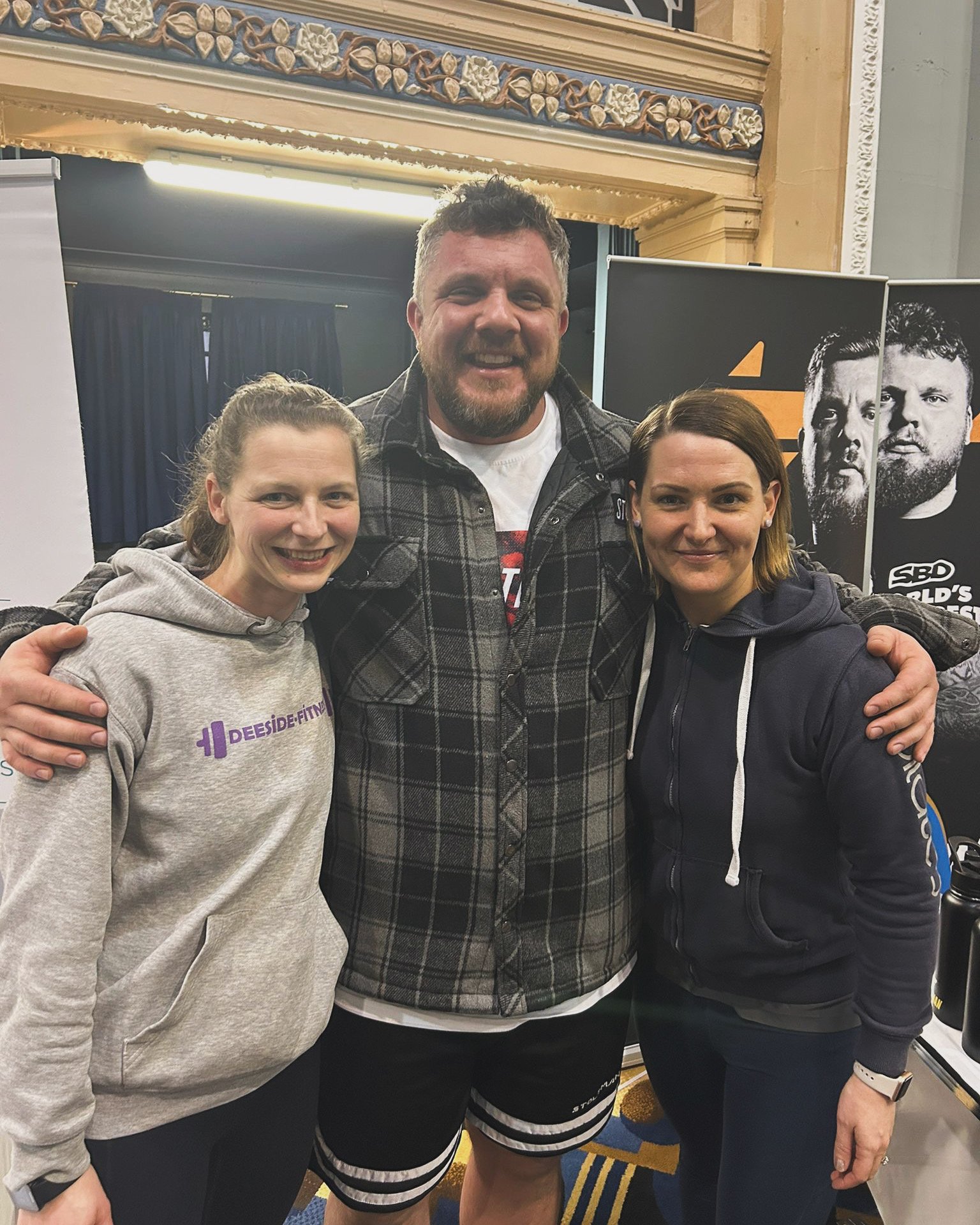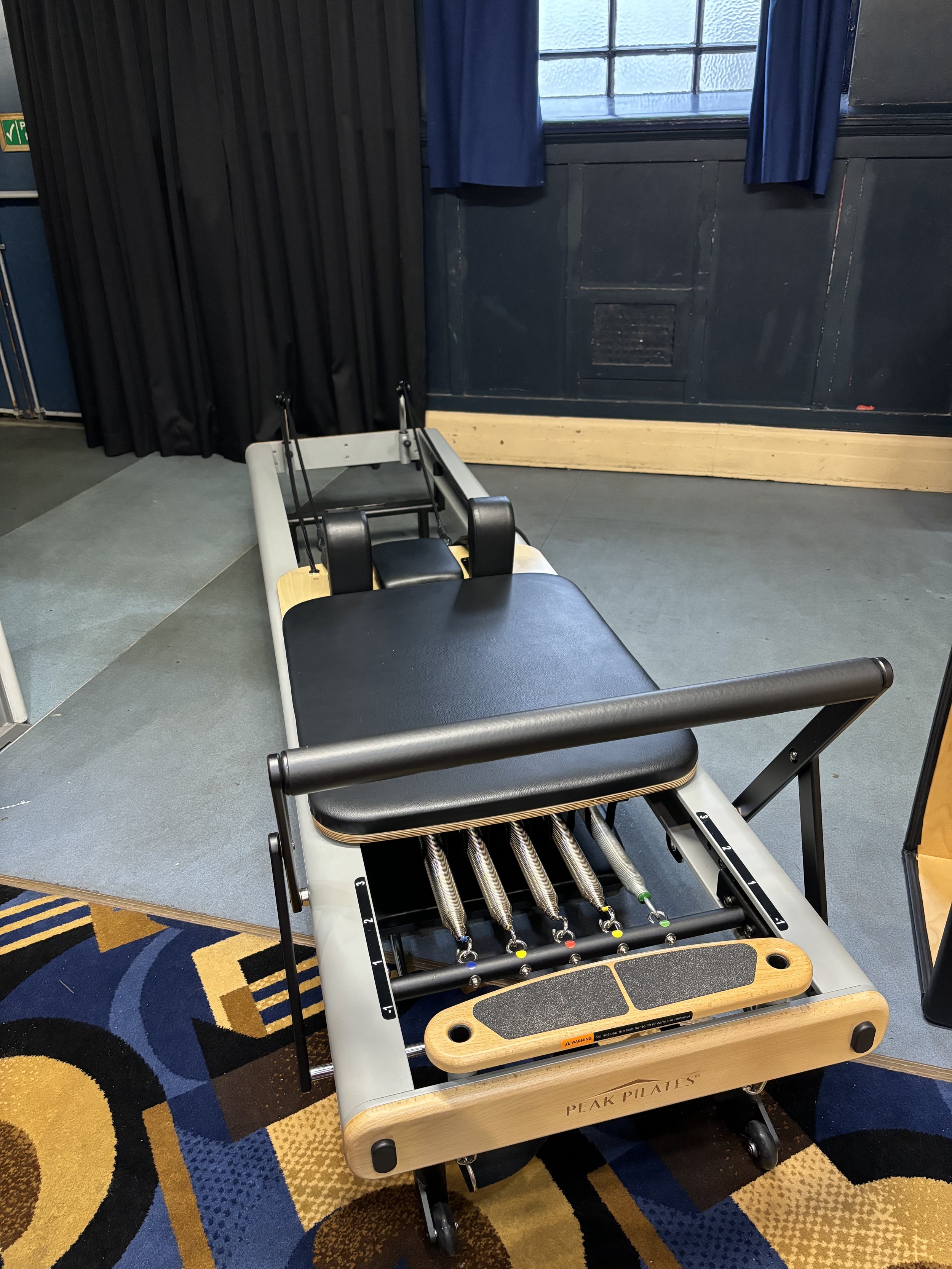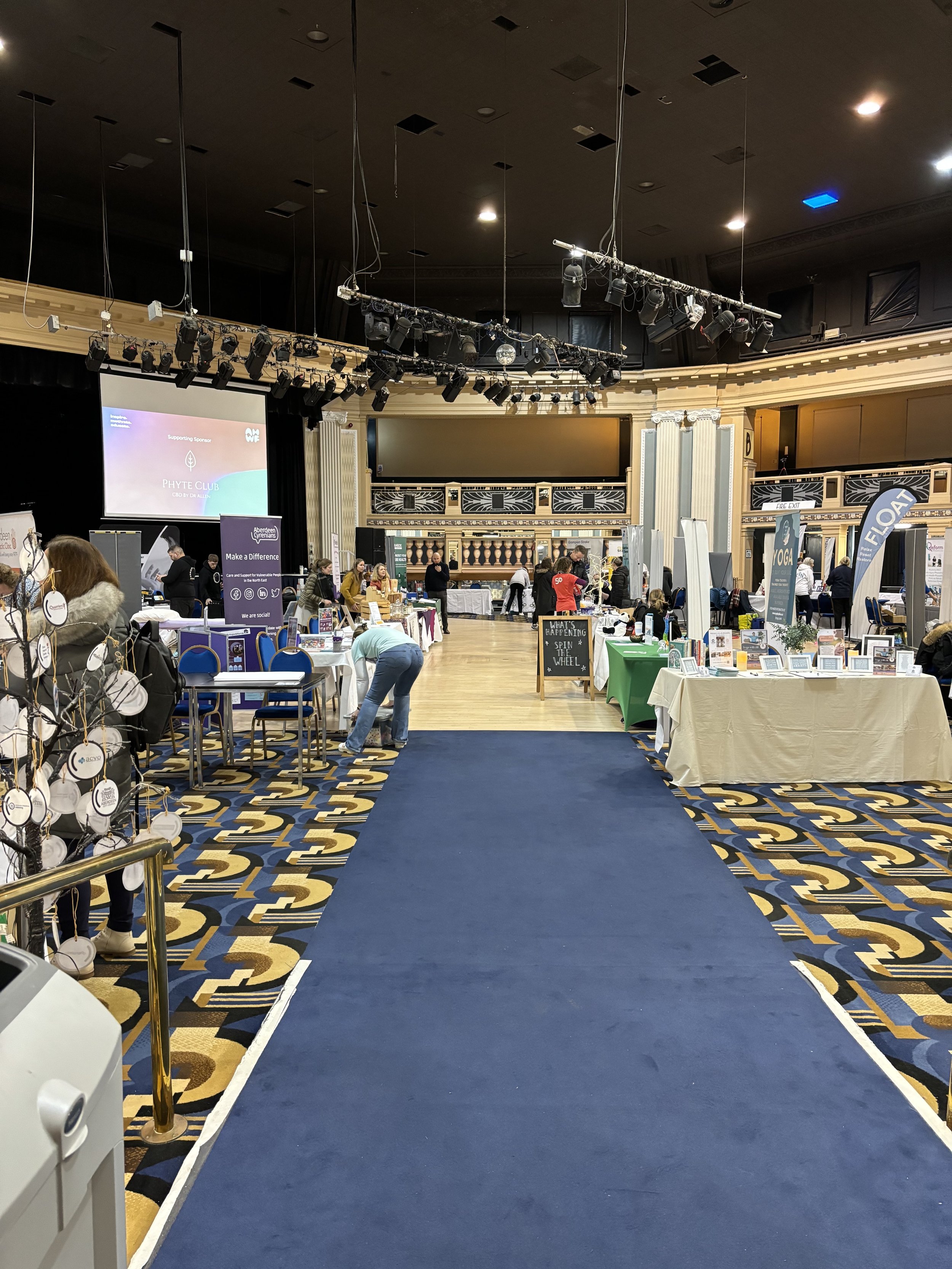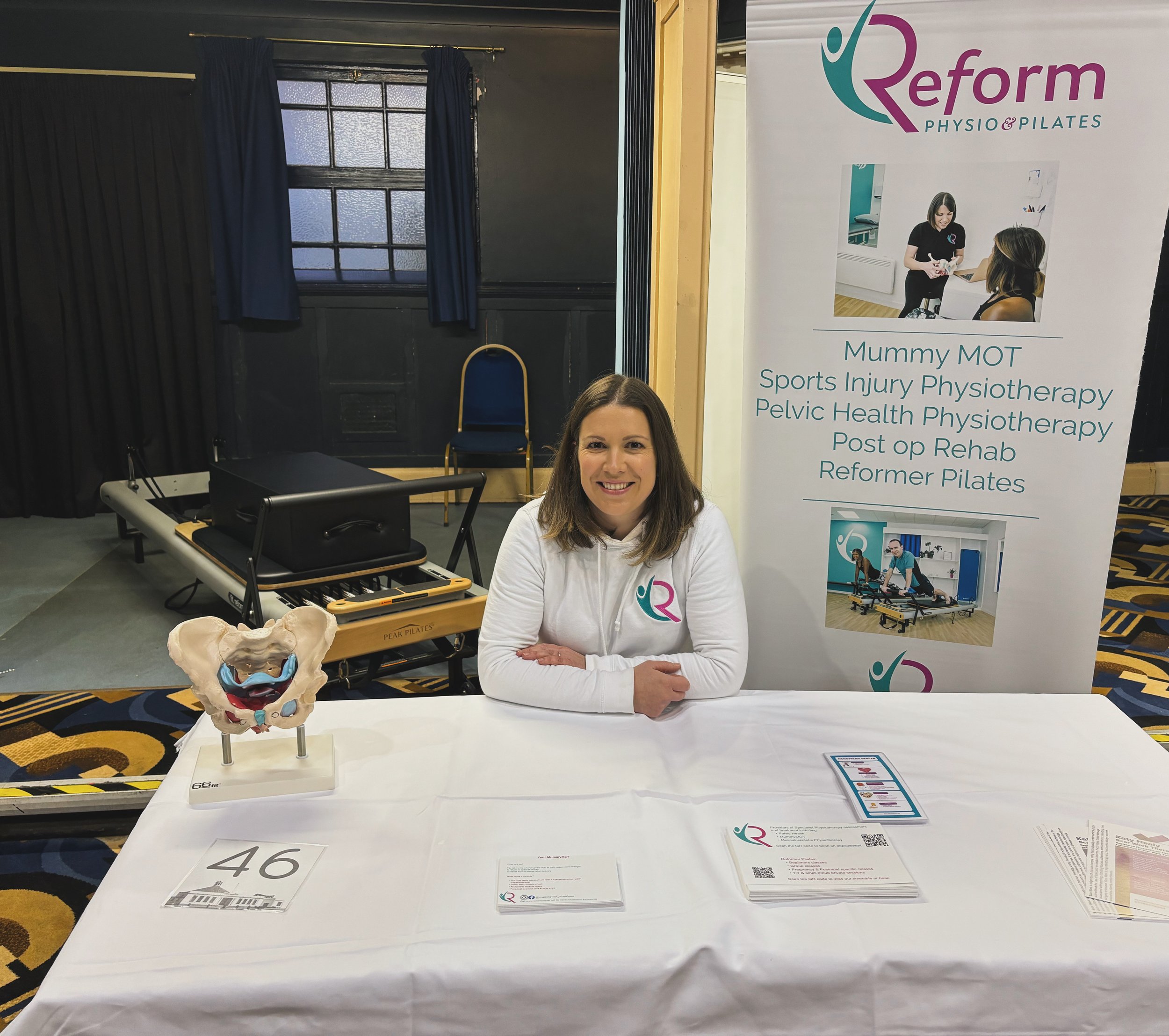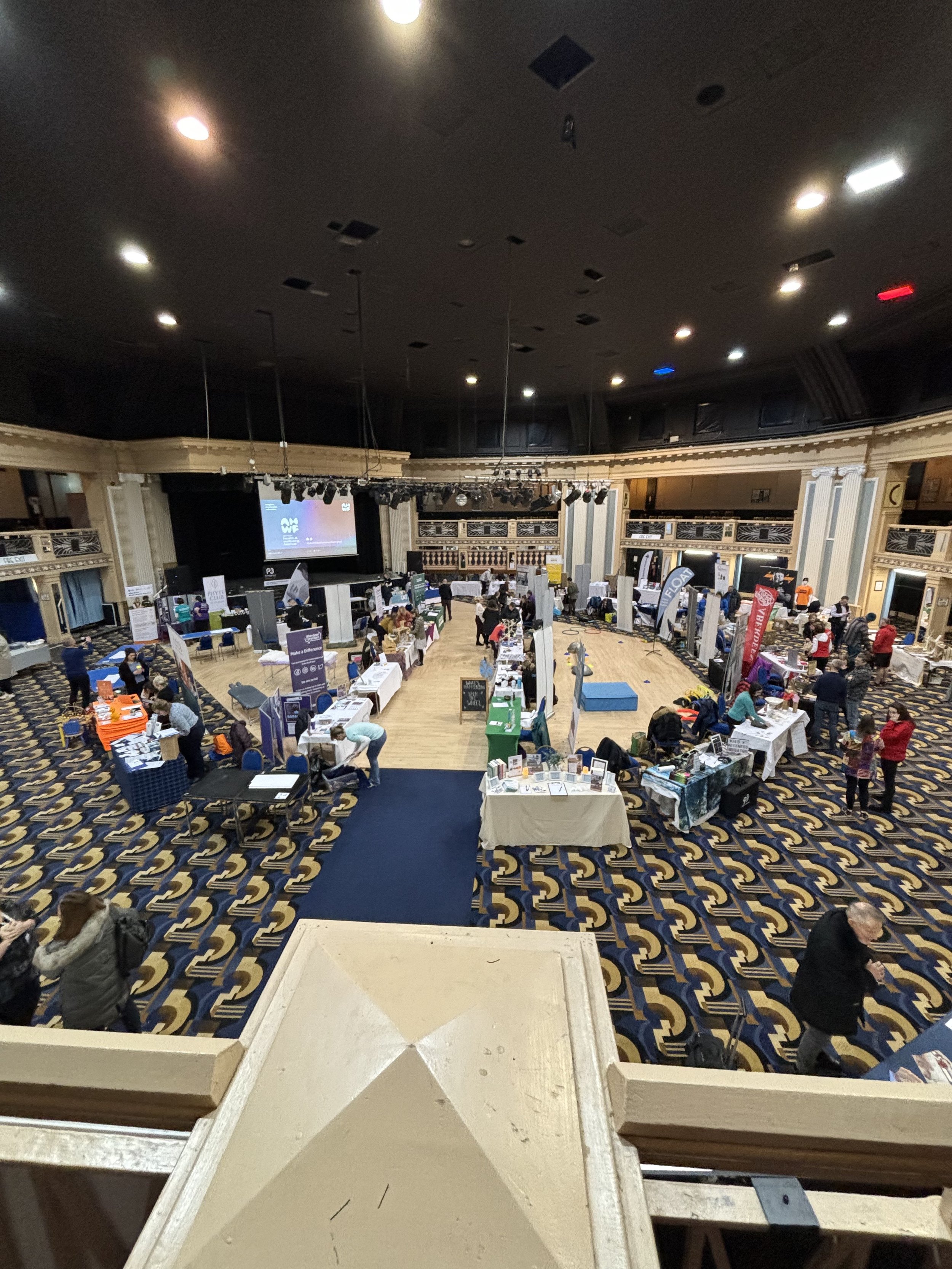What is the Aberdeen Health and wellbeing festival?
We were super excited to attend the Aberdeen Health and wellbeing festival, last Saturday, 13th January at Aberdeen’s Beach Ballroom. What a venue!
This was the biggest year yet of this not for profit event, with over 1300 attendees and 60+ stall holders aiming to inspire, educate and motivate the people of Aberdeen to take care of their Health and Wellbeing.
Our stall was next to the mountainous Stoltman brothers, who spent the day lifting fans for photos. We’ve been asked why we didn’t invite them to have a go on the Reformer but I am not sure they would have fitted!
Physiotherapist Ailsa Cairns did get a photo with them though.
As we mentioned above, we took a reformer with us to the event. It garnered alot of interest, particularly from people that were familiar with us already but were keen to get eyes on the Reformer before booking a class.
As well as our roll as stallholders we were delighted to be asked to participate in a Women’s Health Panel discussion.
Women’s Health Panel Discussion
I was invited onto the panel in my role as Pelvic Health Physiotherapist to share my knowledge on women’s health with a particular focus on menopause. I was joined by:
Dr Samantha Whiteside, GP with specialist Menopause training and women’s counsellor/coach.
Dr Monika Gostic, PHD, sharing her knowledge of nutrition and gut health.
I felt that we all shared a keenness for a holistic approach to women’s health encompassing exercise, diet and psychological support and I look forward to working with them both in future.
I have pulled together some of the key topics from our panel:
What are the biggest challenges to women’s health right now?
Awareness.
Many women don’t understand what Pelvic Health looks like. This means they don’t know how to recognise when they are developing symptoms of pelvic floor dysfunction. A good example of this can be pelvic organ prolapse. While we know that on examination 50% of women will have a prolapse, only 1 in 8 women will present with symptoms of a prolapse.
We need to encourage more openness, education and awareness around problems so that we don’t ignore or accept symptoms. We also need education to know who to ask for help.
Knowledge is power. The impact of symptoms can then be lessened mentally and physically
On the topic of prolapse, have you watched the recent BBC documentary ‘My prolapse and me?’. If not, you will find it here.
Access to healthcare
There can be a difficulties accessing GP care at the moment or in some cases a perceived difficulty, leading to women not reaching out for medical help.
We also need to ensure our health professionals have enough time to ask the right questions and listen and interpret women’s responses to ensure we are appropriately diagnosing.
What myths would we like to debunk around menopause?
HRT increases breast cancer risk.
Dr whiteside answered this so succinctly. This answer considers women with no family history of breast cancer. In those cases, there is a higher risk of developing breast cancer if you drink a couple of glasses of wine a night or are obese than from taking HRT.
Urinary incontinence is normal as we get older
Leak when you run? Or struggle to join the kids on the trampoline? Although we think around 1in 4 women will have urinary incontinence in their lifetime, it is common but not normal. This is absolutely something that shouldn’t be ‘put up with’.
Easy takeaway tips
Drink more water
Do daily pelvic floor exercises
Find an exercise you enjoy and keep up with it
Hopefully we’ll see you all there next year!
Laura :-)


